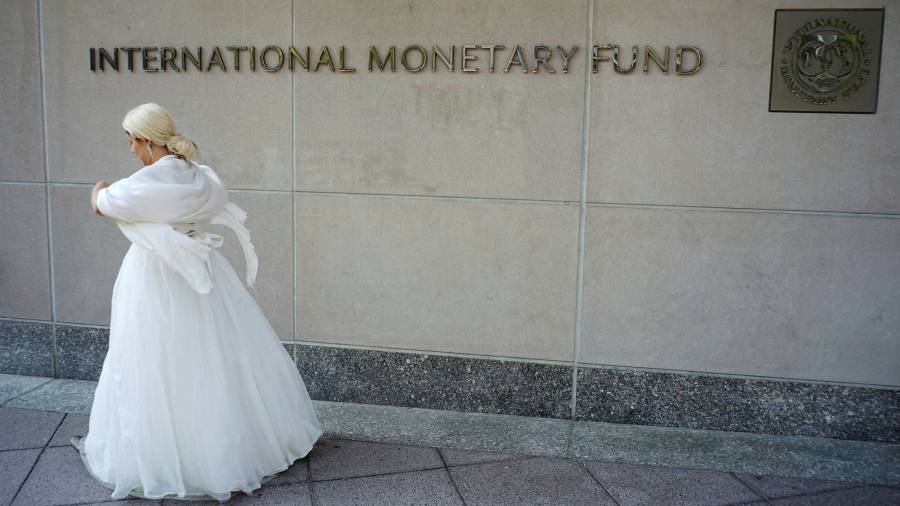[ad_1]
Anyone who, like me, was a student in the 1990s will remember how international governing institutions were then the chic thing to demonstrate against.
One image that sticks with me is of a young woman carrying a figure of a three-headed troll, representing (as she earnestly told the media) the IMF, the World Bank and the World Trade Organization ravaging the world’s poor.
I wonder what she would think today. When the policy outlook on display at the recent IMF and World Bank spring meetings is compared to what drew student ire a quarter of a century ago, it amounts to a conversion that could put Saul of Tarsus to shame.
The World Bank and the fund were excoriated in the 1980s and ‘90s for making the poor pay for basic health provision or presuming that deficits were bad for growth. That is long gone. Here is the new Washington consensus:
Spend big on public health. Fiscal probity, long the core of IMF prescriptions (the joke was that the initials stand for “it’s mostly fiscalâ€), is no longer about reining in public spending but about getting value for money — and spending more where the value can be found.
That means doing whatever it takes to produce and deliver vaccines globally. The IMF’s Fiscal Monitor publication estimates that getting the pandemic under control everywhere would “yield more than $1tn in additional tax revenues in advanced economies, [cumulatively], by 2025, and save more in fiscal support measuresâ€.
In other words, what governments spend on vaccinations can pay for itself many times over. The fund argues strongly for education spending, too, to make up for lost learning in the pandemic and help workers cope with structural changes going forward.
The multilateral institutions’ economists at times seem intensely relaxed about massive deficit spending by rich countries. The IMF takes a benign view of US President Joe Biden’s mammoth $1.9tn rescue package
Like other forecasters, it expects US national income to be higher next year than expected before the pandemic. And it sees insufficient demand stimulus as having permanent costs: countries whose governments spend less money will suffer more “scarring†that cuts long-term productive potential.
In parallel with all of this, the IMF continues to preach prudence, but that means something very different from a decade let alone a generation ago. Strikingly, the fund endorses “recovery contributions†— what others might call temporary solidarity surtaxes — from rich individuals and corporate windfall profits.
The message from the erstwhile headquarters of “neoliberalism†is that to make public finances sustainable, the wealthy and those who have profited from the pandemic should contribute more to the common cause.Â
The IMF even suggested that rich countries could consider net wealth taxes, apparently channelling leftwing US senators Elizabeth Warren and Bernie Sanders.Â
Concerns about inequality were everywhere at the spring meetings. The main policy challenge that the IMF chose to highlight was “managing divergent recoveries†— among countries and among groups within countries — due to the pandemic and in the new normal as economies recover from it.
Back in the ‘90s, it was a truism the Washington consensus reflected the aligned priorities of two DCs: the international institutions based there and the US government — with the latter to a significant degree driving the former.
That alignment remains. Multilateral calls for the return of an activist state role dovetail with Biden’s ambition to emulate Franklin Roosevelt’s New Deal reforms.
But it is hard to argue today that the IMF and the World Bank simply parrot US preferences, even if being on the same page as their biggest shareholder makes life easier. The shift in the thinking of the international economic policy community predated that of the US government.
And the relationship can flow both ways. The White House does not take directions from the multilateral institutions located a few city blocks to the west.
But it does not hurt Biden that the global guardians of economic orthodoxy have endorsed the most radical US programme in generations, especially when some Americans are engaging in friendly fire.
Politics is the art of the possible — but what is possible is often determined by what is conceivable. The new Washington consensus could prove as politically powerful as the old one.
[ad_2]
Source link






